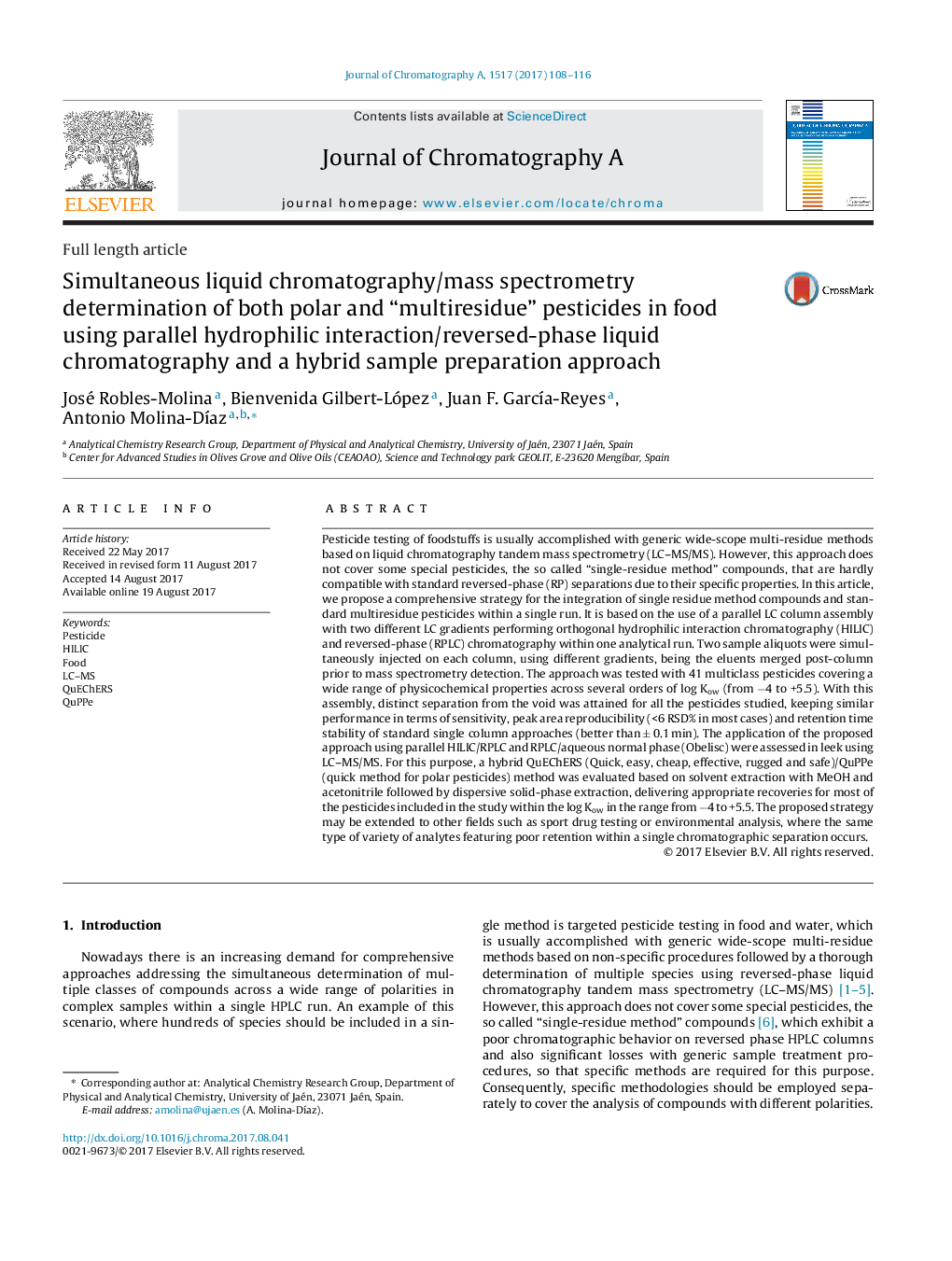| Article ID | Journal | Published Year | Pages | File Type |
|---|---|---|---|---|
| 5134938 | Journal of Chromatography A | 2017 | 9 Pages |
â¢A novel approach for pesticide testing including both polar and nonpolar species.â¢Use of a parallel column assembly for simultaneous HILIC and RP separations.â¢Successfully tested for +45 compounds with HILIC/RPLC and HILIC/anion exchange LC.â¢Ability to analyse a broad range of species with log Kow over 10 orders.â¢Novel sample preparation proposed based on the fusion of QuEChERS and QuPPe.
Pesticide testing of foodstuffs is usually accomplished with generic wide-scope multi-residue methods based on liquid chromatography tandem mass spectrometry (LC-MS/MS). However, this approach does not cover some special pesticides, the so called “single-residue method” compounds, that are hardly compatible with standard reversed-phase (RP) separations due to their specific properties. In this article, we propose a comprehensive strategy for the integration of single residue method compounds and standard multiresidue pesticides within a single run. It is based on the use of a parallel LC column assembly with two different LC gradients performing orthogonal hydrophilic interaction chromatography (HILIC) and reversed-phase (RPLC) chromatography within one analytical run. Two sample aliquots were simultaneously injected on each column, using different gradients, being the eluents merged post-column prior to mass spectrometry detection. The approach was tested with 41 multiclass pesticides covering a wide range of physicochemical properties across several orders of log Kow (from â4 to +5.5). With this assembly, distinct separation from the void was attained for all the pesticides studied, keeping similar performance in terms of sensitivity, peak area reproducibility (<6 RSD% in most cases) and retention time stability of standard single column approaches (better than ± 0.1 min). The application of the proposed approach using parallel HILIC/RPLC and RPLC/aqueous normal phase (Obelisc) were assessed in leek using LC-MS/MS. For this purpose, a hybrid QuEChERS (Quick, easy, cheap, effective, rugged and safe)/QuPPe (quick method for polar pesticides) method was evaluated based on solvent extraction with MeOH and acetonitrile followed by dispersive solid-phase extraction, delivering appropriate recoveries for most of the pesticides included in the study within the log Kow in the range from â4 to +5.5. The proposed strategy may be extended to other fields such as sport drug testing or environmental analysis, where the same type of variety of analytes featuring poor retention within a single chromatographic separation occurs.
